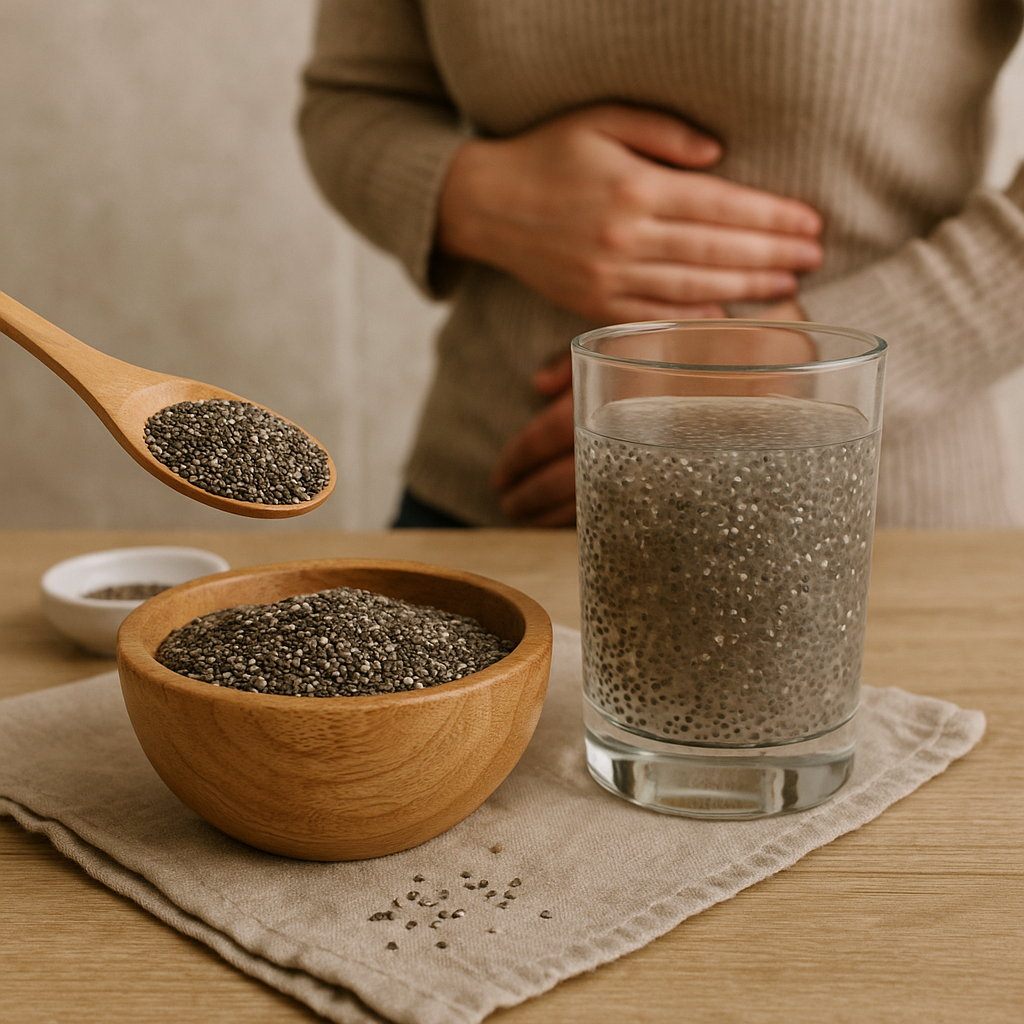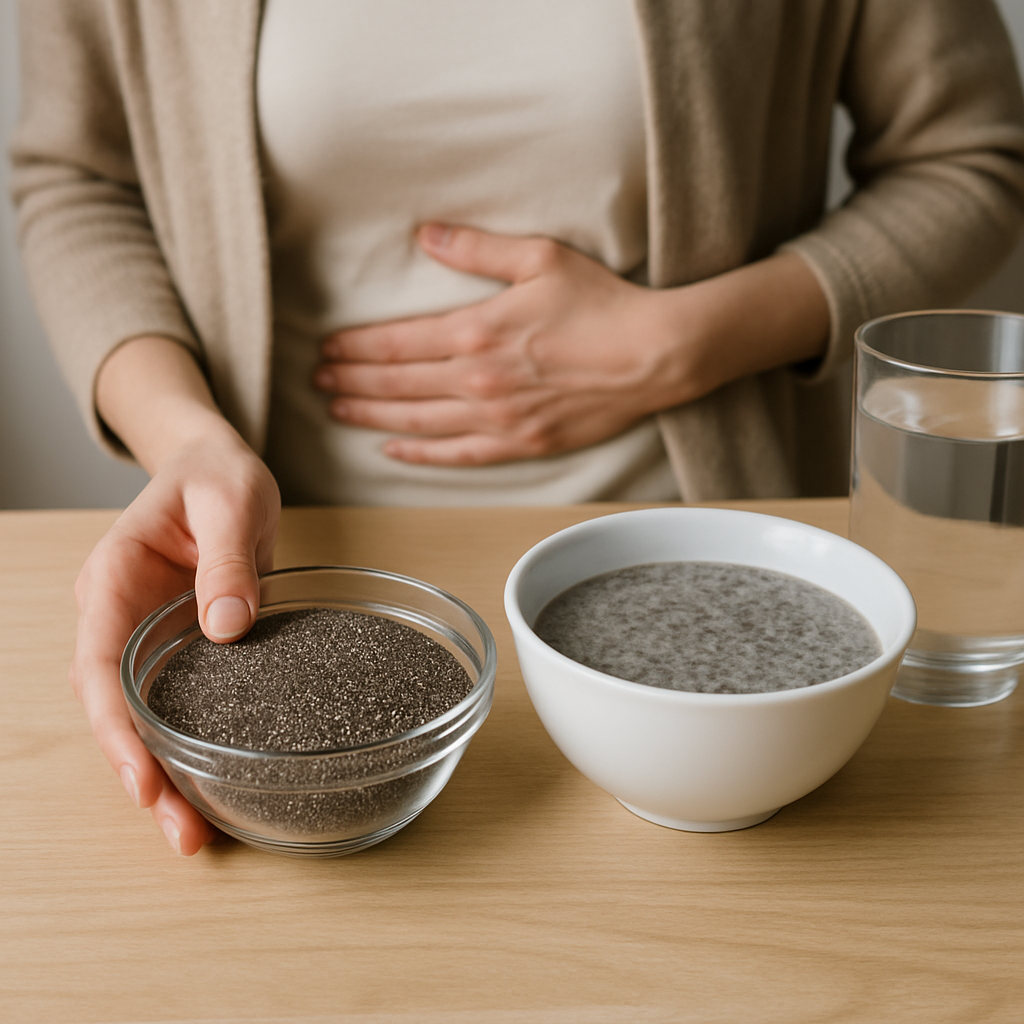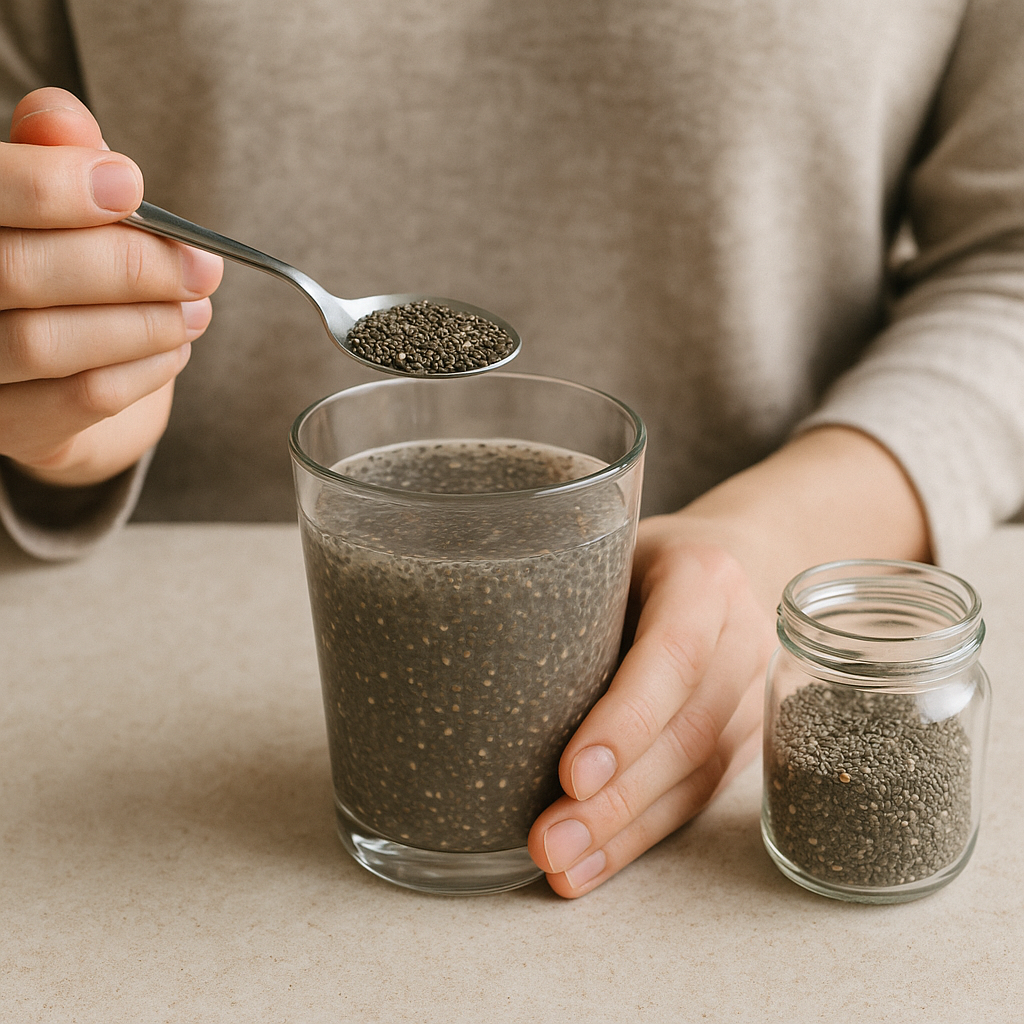Ask Ayurvedic doctor a question and get a consultation online on the problem of your concern in a free or paid mode. More than 2,000 experienced doctors work and wait for your questions on our site and help users to solve their health problems every day.
Can Chia Seeds Cause Constipation?

Chia seeds have become a popular superfood praised for their numerous health benefits, including improving digestion. But there’s a question many people wonder about: can chia seeds cause constipation? Or more specifically, do chia seeds cause constipation in certain situations? While chia seeds are generally known for aiding digestion thanks to their high fiber content, some people report discomfort or even constipation after adding them to their diet. So, what’s really going on here?
In this article, we’ll explore the relationship between chia seeds and constipation—what science says, common mistakes that might lead to issues, and how to properly use chia seeds for constipation relief. Whether you’re a chia newbie or someone who’s struggled with gut health, this guide will provide practical tips and answers to common questions like how to use chia seeds for constipation and how long does it take for chia seeds to work for constipation. Let’s dive in!

Chia Seeds and Digestion: What You Should Know
Chia seeds are tiny black or white seeds harvested from the plant Salvia hispanica. Despite their small size, they’re packed with nutrients—especially dietary fiber, omega-3 fatty acids, and antioxidants. The fiber content is particularly important when it comes to digestion. Chia seeds contain both soluble and insoluble fiber, which help regulate bowel movements and promote gut health.
When soaked in liquid, chia seeds absorb up to 10-12 times their weight, forming a gel-like substance. This gel helps soften stools and can ease constipation by making it easier to pass waste. Because of this, chia seeds are often recommended as a natural remedy for constipation. However, if eaten improperly or without enough water, they might actually have the opposite effect.

Can Chia Seeds Cause Constipation?
When Chia Seeds May Lead to Discomfort
It’s a bit confusing, but yes, under certain conditions, chia seeds can cause constipation or at least contribute to digestive discomfort like bloating or cramping. This usually happens if chia seeds are consumed dry without adequate hydration. The fiber in chia absorbs water and expands, so eating them dry can cause them to swell in your throat or intestines, potentially leading to blockages or constipation.
Another factor is sudden increase in fiber intake. If your body isn’t used to high-fiber foods, jumping straight into a chia-heavy diet might overwhelm your digestive system, causing constipation instead of relief.
Common Mistakes in Chia Consumption
Many people make the mistake of eating chia seeds straight out of the bag, thinking they’re just like any other seed or grain. But chia seeds are unique because of their gel-forming property. If you don’t soak them beforehand or consume plenty of fluids, they can clump together and slow down digestion.
Also, relying solely on chia seeds without balancing your diet with other fiber sources and adequate water intake can backfire. Fiber needs water to move smoothly through the digestive tract, so neglecting hydration is a common reason for chia seeds and constipation issues.
Chia Seeds for Constipation Relief: How to Use Them
If you’re wondering how to use chia seeds for constipation, the key is preparation and moderation. The good news is that when used correctly, chia seeds can be a fantastic natural remedy to keep your digestion regular and healthy.
Soaking Chia Seeds the Right Way
One of the simplest ways to avoid constipation caused by chia seeds is to soak them before eating. Soaking allows the seeds to absorb water, turning them into a gelatinous mass that’s easy to digest. Here’s a quick guide on soaking chia seeds:
-
Mix 1 tablespoon of chia seeds with at least 8 ounces (a full glass) of water or your favorite liquid like almond milk or juice.
-
Let the seeds soak for at least 20-30 minutes, though overnight soaking is even better for maximum gel formation.
-
Stir occasionally to prevent clumping.
Eating chia seeds in this gel form ensures they won’t absorb water from your intestines and cause dehydration or constipation. Instead, they act as a gentle fiber supplement, softening your stool and promoting smoother bowel movements.
Daily Intake and Timing
How much chia seed should you eat for constipation? Experts generally recommend starting with about 1 tablespoon per day, gradually increasing to 2 tablespoons once your body adjusts. This helps prevent sudden digestive upset.
Timing matters, too. Consuming soaked chia seeds in the morning or before meals can help prime your digestive system. Make sure to drink plenty of water throughout the day to complement the fiber and help everything move smoothly.

How Long Does It Take for Chia Seeds to Work for Constipation?
You might ask, how long does it take for chia seeds to work for constipation? The answer varies, depending on your body and habits. Some people notice improvements within 24 to 48 hours after starting chia seeds regularly, especially if combined with proper hydration and a balanced diet.
However, for others, it might take a few days to a week for chia seeds to show significant effects. This is because fiber works by gradually improving bowel regularity rather than providing instant relief like some laxatives.
If you don’t see improvement after a week, it’s a good idea to re-evaluate your overall diet and lifestyle or consult a healthcare professional. Constipation can have many causes, and while chia seeds help, they’re not a cure-all.
Ayurvedic View on Chia Seeds and Gut Health
Interestingly, while chia seeds are not traditionally part of Ayurveda, their properties align well with Ayurvedic principles of balancing the digestive system. Ayurveda emphasizes natural, fiber-rich foods to stimulate Agni (digestive fire) and cleanse the digestive tract.
In Ayurveda, constipation is often seen as an imbalance of Vata dosha, which governs movement and elimination. Since chia seeds absorb water and provide bulk to stool, they can help calm Vata by lubricating the colon and easing passage of waste. Plus, the omega-3 fats in chia seeds are believed to reduce inflammation and promote overall gut health.
If you want to try an Ayurvedic-inspired approach with chia, soak them with warm water or herbal teas like ginger or fennel, which further support digestion and soothe the gut.
Conclusion
So, can chia seeds cause constipation? The short answer is yes, but usually only if they’re consumed incorrectly—like dry or without enough water. When used properly, chia seeds are actually an excellent natural way to relieve constipation and support healthy digestion.
Remember to always soak chia seeds before eating and start with a small daily amount, increasing gradually. Pair them with plenty of fluids and a balanced diet rich in other fiber sources for best results. If you’re patient, how long does it take for chia seeds to work for constipation? — often just a few days to a week.
Chia seeds offer a simple, natural way to improve gut health and make your bathroom visits easier without harsh laxatives or medications. Whether you’re new to chia or have tried them before, hopefully this guide clears up confusion around chia seeds and constipation and shows you how to get the benefits without discomfort.
If you’re interested in exploring further, consider combining chia seeds with Ayurvedic digestive herbs or consulting a nutrition expert to tailor a gut-friendly plan. Give chia a try, and share your experience with others—because good digestion is something worth talking about!
FAQs
Why am I still constipated after eating chia seeds?
If you’re still constipated, it might be because you’re not drinking enough water or eating enough fiber overall. Also, eating chia seeds dry or too much too soon can cause blockages. Make sure to soak them and stay hydrated.
What happens if you eat chia seeds daily?
Eating chia seeds daily can improve digestion, lower cholesterol, and provide omega-3 fats. However, too much fiber too quickly can cause bloating or constipation, so it’s best to increase intake gradually.
What happens if you eat chia seeds without soaking them?
Eating dry chia seeds can lead to them swelling in your throat or intestines, causing discomfort or constipation. Always soak chia seeds before eating to avoid this problem.
What not to mix with chia seeds?
Avoid mixing chia seeds with very thick or sticky substances without enough liquid, as it can create clumps. Also, be cautious mixing with medications that slow digestion or blood thinners; consult a doctor if unsure.

